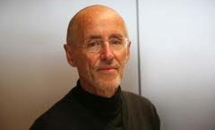Despite the fact that this year is the 10th anniversary of the publication of the human genome sequence, and that this event was celebrated as a demonstration of our control over our identity, the fact is, we are still a long way from understanding all the information contained in the genome, and how this information directs the development of our organism and its functions. The discovery that the number of genes in our genome was not very different from the number of the fruit fly’s genome led us to consider that our complexity cannot be explained by solely basing our arguments on the classic concept of the gene; that is, a DNA fragment that codifies for a protein by using the genetic code to turn the sequence of nucleotides into the sequence of amino acids. In fact, this type of classic genes represents only 2% of the length of our genome. In this lecture, the speaker will discuss what we have learned over the past 10 years and especially what still remains to be learnt about the rest of the genome: the dark genome.
Out of everything we have learned, perhaps the most important point has been to question the classic concept of the gene in two areas. Firstly: that one single gene, through the mechanism of alternative processing, can give rise to a large number of proteins with different functions. And secondly: that in addition to the genetic code, an epigenetic code exists which modulates the expression of genes and cellular identity. One important part of this epigenetic code determines the way in which DNA binds around the basic proteins –histones – to form chromatin. The speaker will explain how this wrapping in chromatin is influenced partly by chemical modifications of histones and the DNA, and partly by RNA molecules that also control gene expression at other levels. The discovery of these new RNA molecules that do not codify for proteins, that are generated by transcription of the dark genome and which have important regulatory functions, has been the most productive surprise of recent years, and it gives us a glimpse of the genome’s unsuspected complexity.
Modern technology has granted us powerful methods of global analysis which, over the next decade, should allow us to outline the general lines that organise this complexity and coordinate the normal development and functioning of complex organisms. Only then will we be able to use this knowledge to understand and treat the disruptions in genome functions, which are the basis of most of our illnesses.
Cycle: Challenges of The 21st Century. The Voice of Science
Organized by: Residence for Researchers
